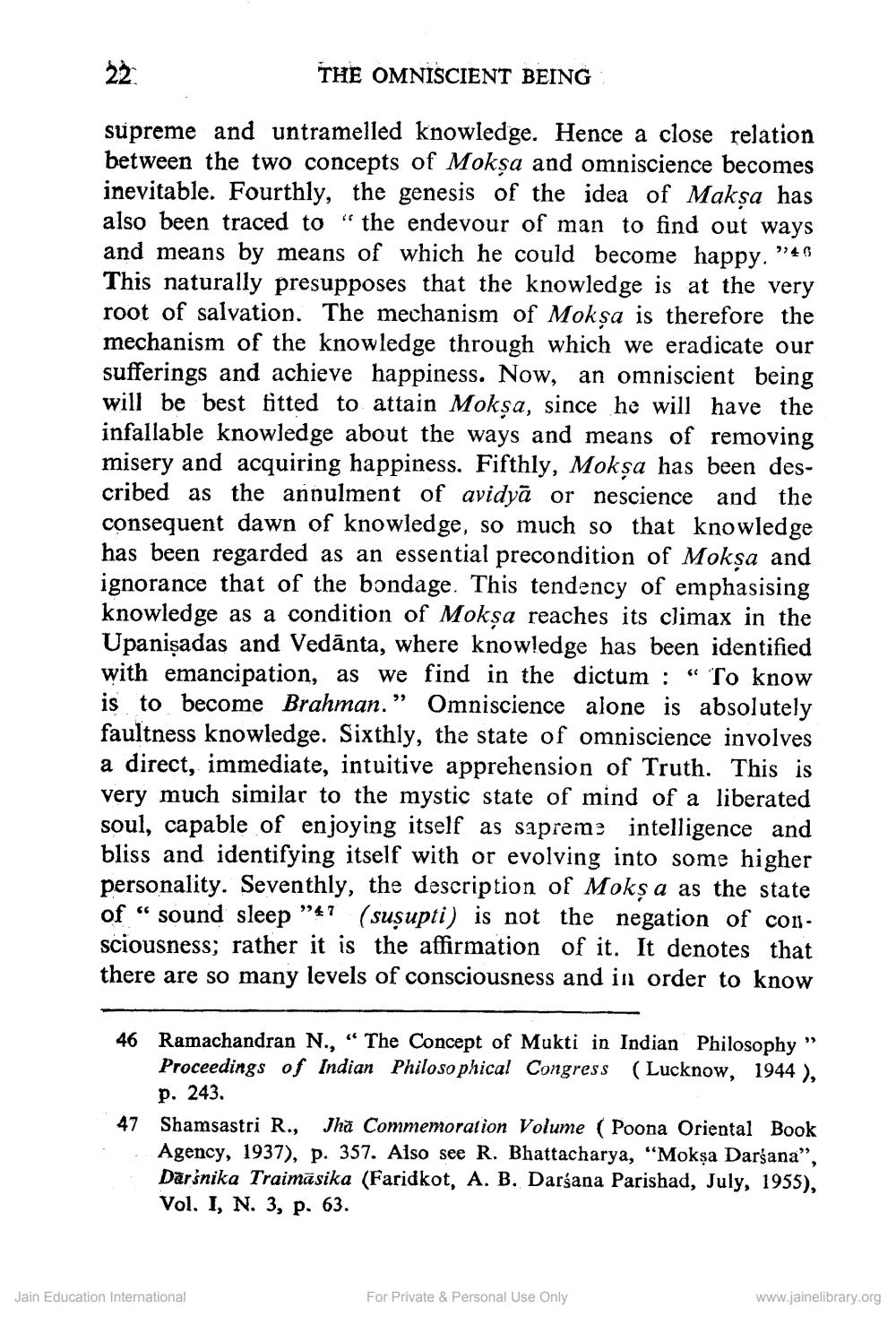________________
22
THE OMNISCIENT BEING
supreme and untramelled knowledge. Hence a close relation between the two concepts of Mokşa and omniscience becomes inevitable. Fourthly, the genesis of the idea of Maksa has also been traced to "the endevour of man to find out ways and means by means of which he could become happy. "46 This naturally presupposes that the knowledge is at the very root of salvation. The mechanism of Moksa is therefore the mechanism of the knowledge through which we eradicate our sufferings and achieve happiness. Now, an omniscient being will be best fitted to attain Mokşa, since he will have the infallable knowledge about the ways and means of removing misery and acquiring happiness. Fifthly, Mokşa has been described as the annulment of avidyā or nescience and the consequent dawn of knowledge, so much so that knowledge has been regarded as an essential precondition of Moksa and ignorance that of the bondage. This tendency of emphasising knowledge as a condition of Mokşa reaches its climax in the Upanişadas and Vedānta, where knowledge has been identified with emancipation, as we find in the dictum : “ To know is to become Brahman.” Omniscience alone is absolutely faultness knowledge. Sixthly, the state of omniscience involves a direct, immediate, intuitive apprehension of Truth. This is very much similar to the mystic state of mind of a liberated soul, capable of enjoying itself as saprem intelligence and bliss and identifying itself with or evolving into some higher personality. Seventhly, the description of Moks a as the state of “ sound sleep "47 (suşupti) is not the negation of consciousness; rather it is the affirmation of it. It denotes that there are so many levels of consciousness and in order to know
46 Ramachandran N., “ The Concept of Mukti in Indian Philosophy"
Proceedings of Indian Philosophical Congress (Lucknow, 1944),
p. 243. 47 Shamsastri R., Jha Commemoration Volume (Poona Oriental Book
Agency, 1937), p. 357. Also see R. Bhattacharya, "Moksa Darsana". Darsnika Traimāsika (Faridkot, A. B. Darśana Parishad, July, 1955), Vol. I, N. 3, p. 63.
Jain Education International
For Private & Personal Use Only
www.jainelibrary.org




